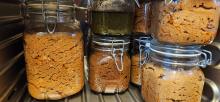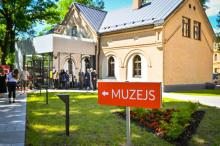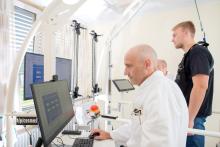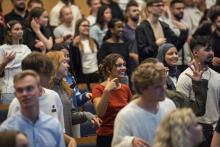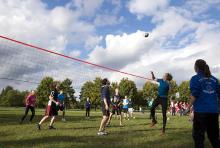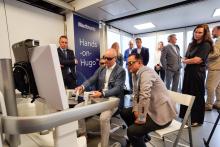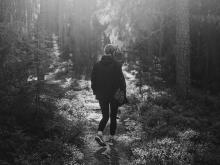A new exhibition, Professor Hochstetter's Anatomical Cabinet, opened to visitors at the Rīga Stradiņš University (RSU) Anatomy Museum on 5 September. This exhibition features historical anatomical specimens created between the late 18th century and the early 20th century. This valuable collection was donated to RSU in 2021 by Swiss anatomist and anatomy historian, Oscar Baldomero.
Kārlis Langins is an economist and statistician by profession, who has swapped his previously monotonous work routine for a new challenge. It combines both passion and innovative entrepreneurship: numbers have been replaced by the world of food. With the support of the B-Space Business Incubator at Rīga Stradiņš University (RSU), he has developed a new food product from grey peas.
Langins’ road to success began with baking bread and learning the art of cooking, and has continued by collaborating with leading Latvian microbiologists.
The Rīga Stradiņš University (RSU) B-Space business incubator is opening applications for its pre-incubation (PINK) programme.
A new exhibition, Professor Hochstetter's Anatomical Cabinet, will open to visitors at the Rīga Stradiņš University (RSU) Anatomy Museum on Thursday, 5 September. This exhibition will feature historical anatomical specimens created between the late 18th century and the early 20th century. This valuable collection was donated to RSU in 2021 by Swiss anatomist and anatomy historian, Oscar Baldomero.
Laurence Dietze, Cooperation Coordinator, medical student,
RSU International Department
Prof. Holger Schmidt is the Head of the Neurology Department and a key figure in establishing the cooperation between Rīga Stradiņš University (RSU) and Elbe Klinikum Stade (EKS). He has played an instrumental role in bringing this partnership to life.
Between 20 to 23 August, more than 400 new international and exchange students from 43 countries attended Orientation Week organised by the Rīga Stradiņš University (RSU) International Department.
To get the new students of Rīga Stradiņš University (RSU) ready for their first year of studies, the traditional Freshers’ Sports Day will take place on Thursday, 5 September, from 12.00 to 16.00 at RSU Inspiration Park (16 Dzirciema iela).
Let’s get moving together with the coaches from the RSU Sports Club, the members of the RSU Student Union and our special guests - students Monta Priede and Nataļja Anikejeva.
On Wednesday, 28 August, a demonstration of the HUGO (Medtronic Hugo Robotic-Assisted Surgery) robotic system took place at the Rīga Stradiņš University (RSU) Medical Education Technology Centre (METC), at 26a Anniņmuižas bulv..
While there has always been a genuine interest in wild foods in Latvia, enthusiasm for them has been more subdued in other parts of the world. This has changed in recent decades, when the green agenda, climate change, and the increasingly close link between food consumption and lifestyle have contributed to a growing interest in foraging and wildlife, both in society at large and in the scientific community.
Study Course Description
| Study Course Information | |||||||||
| Course Code: | |||||||||

